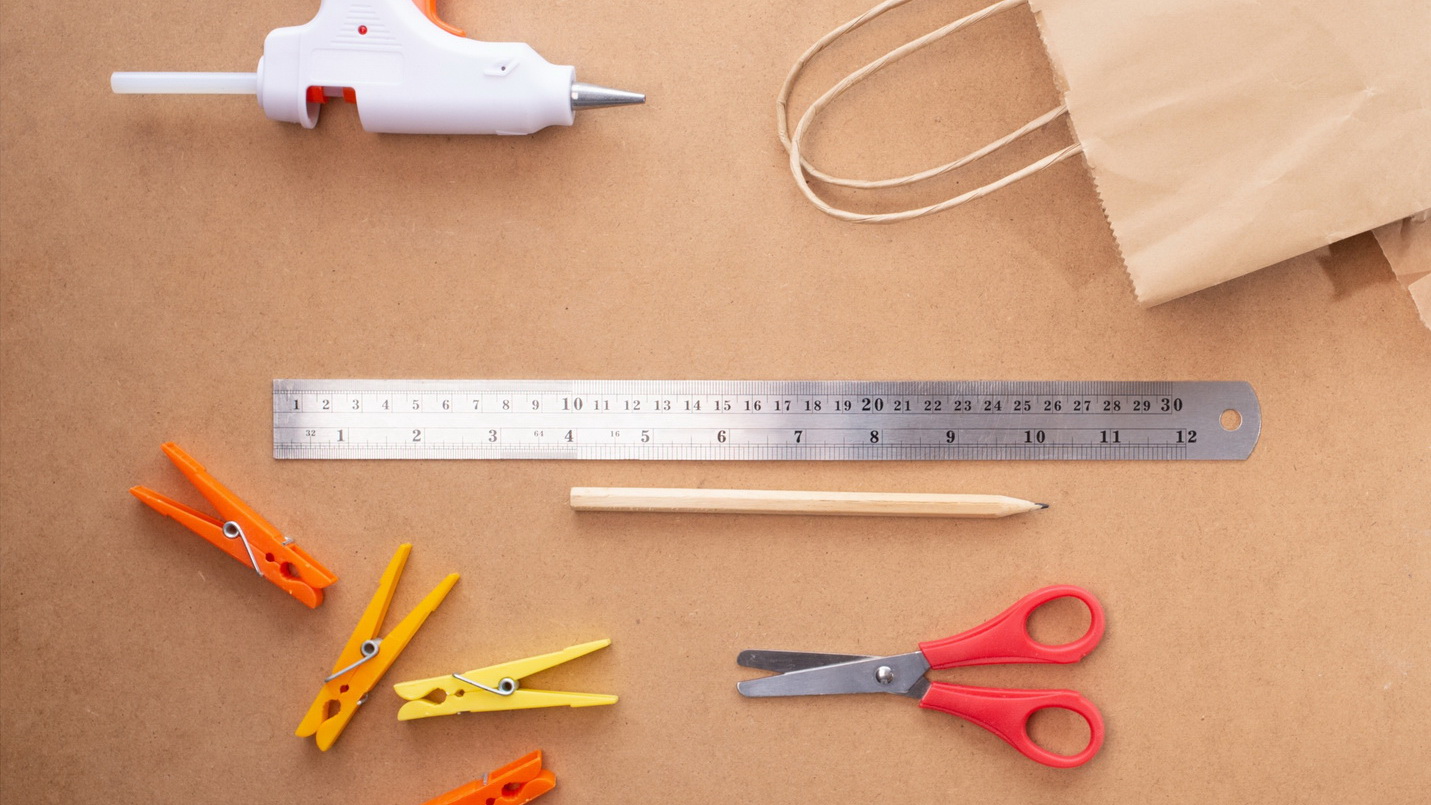Basic measurement concepts Worksheets for Ages 3-9
8 filtered results
-
From - To
Explore our engaging Basic Measurement Concepts Worksheets, designed for children ages 3 to 9. These resources introduce important measurement skills through fun and interactive activities, perfect for boosting early learning and comprehension. With a variety of worksheets focusing on concepts like length, weight, capacity, and time, children will develop essential mathematical abilities in a playful environment. Our worksheets cater to different learning styles, making them suitable for both home and classroom use. Enhance your child's understanding of measurement while fostering critical thinking and problem-solving skills. Download our colorful worksheets today and make learning measurements a delightful adventure!
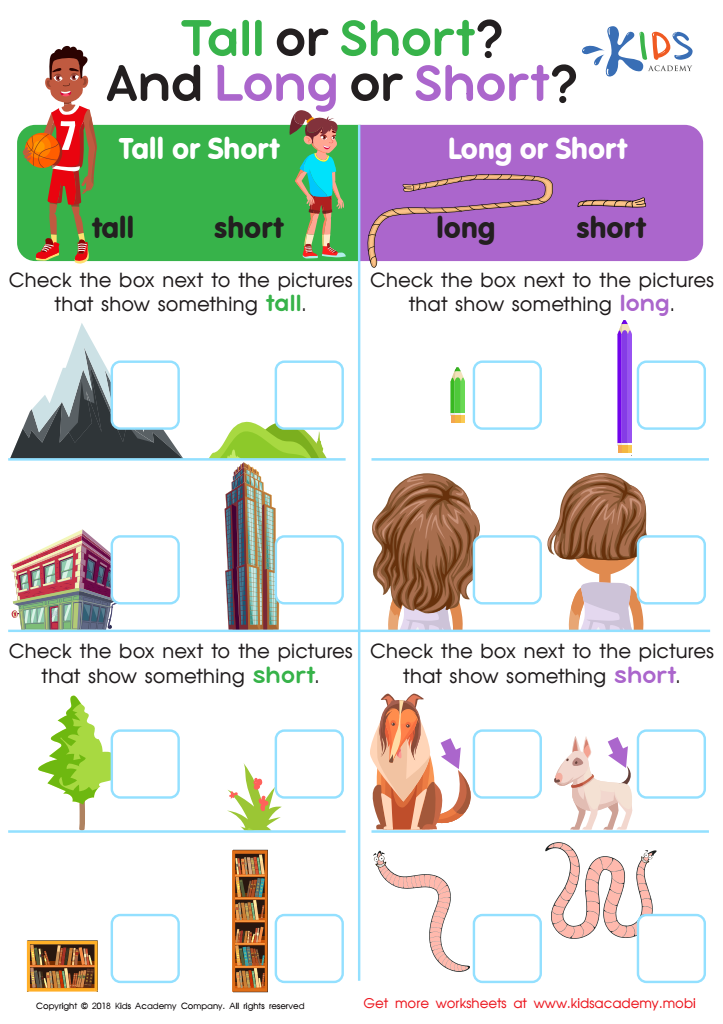

Tall or Short and Long or Short? Worksheet
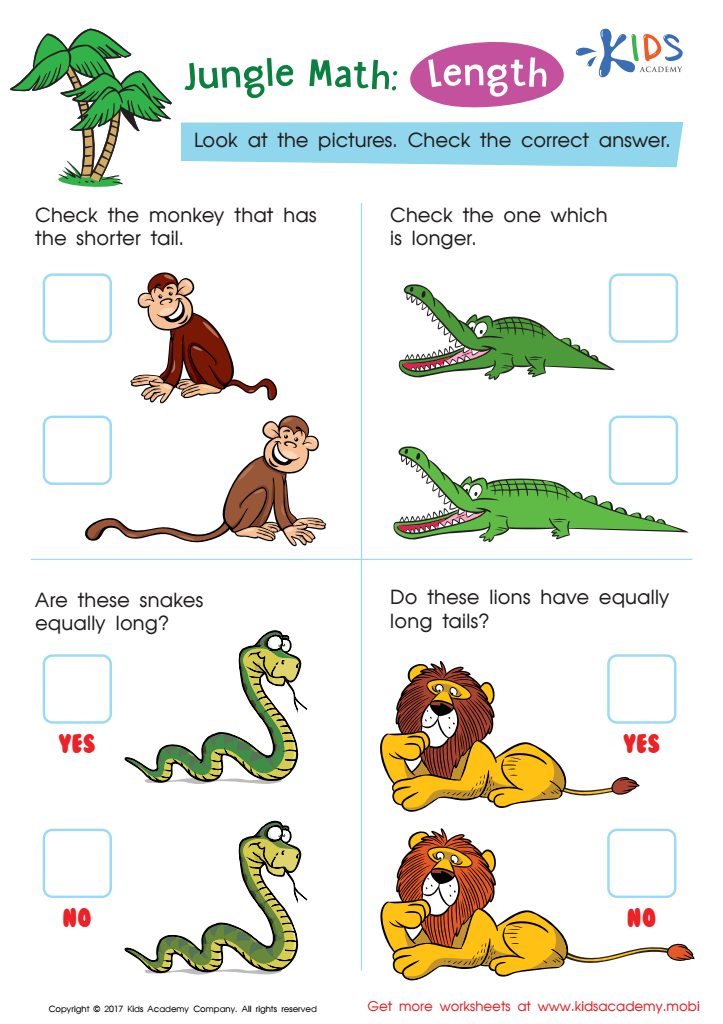

Which One Is Longer - Length Worksheet
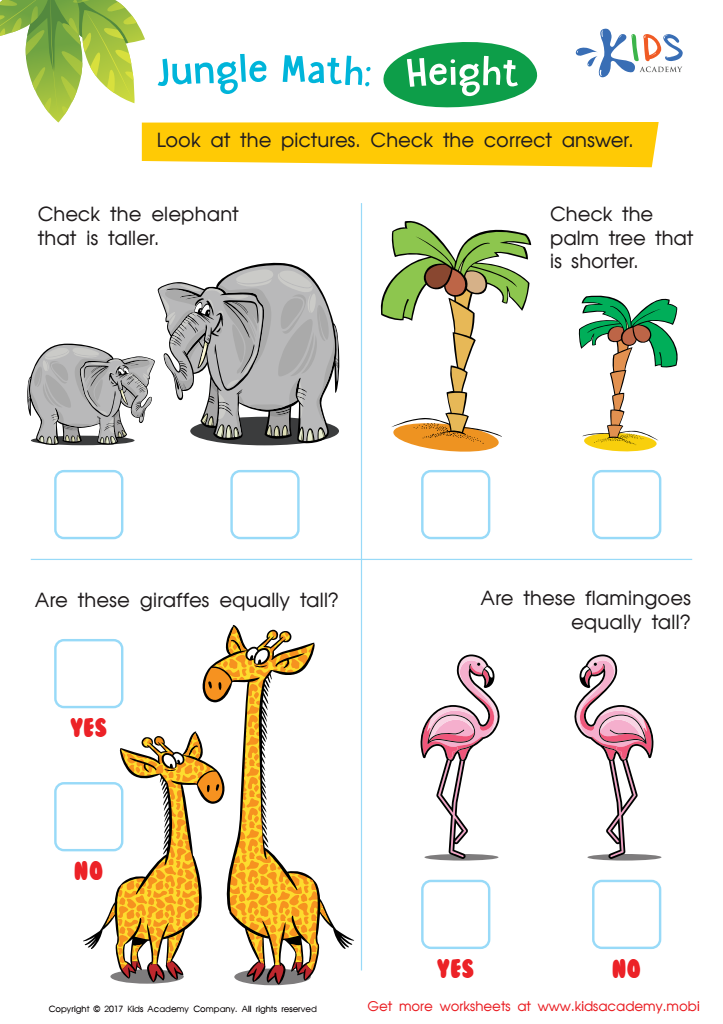

Which Is Taller Worksheet
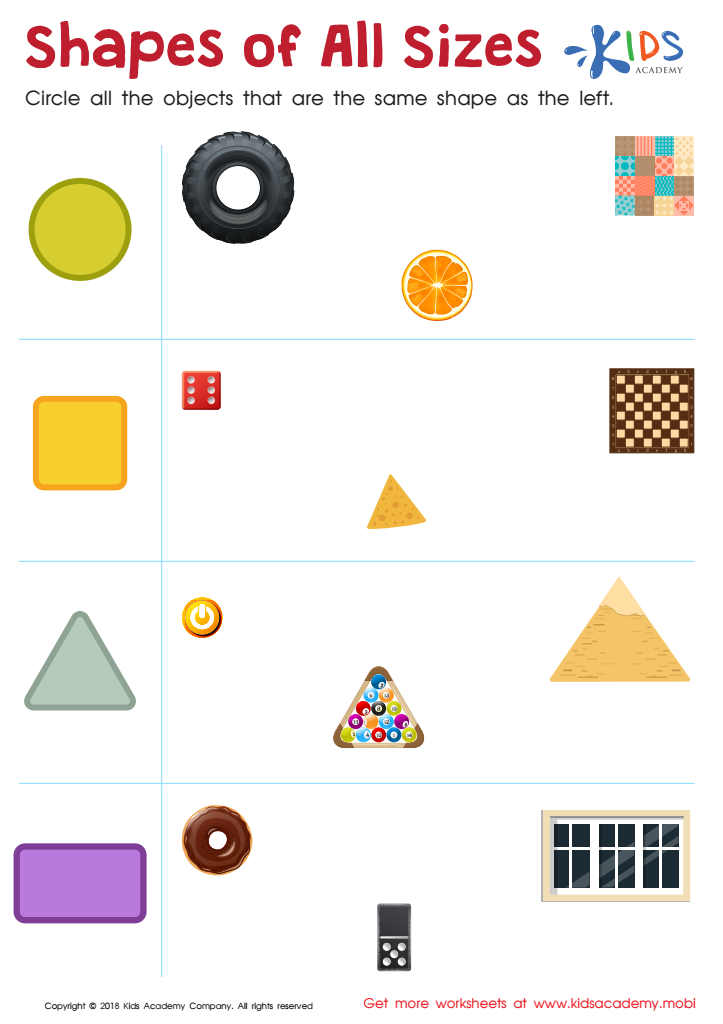

Shapes of All Sizes Worksheet
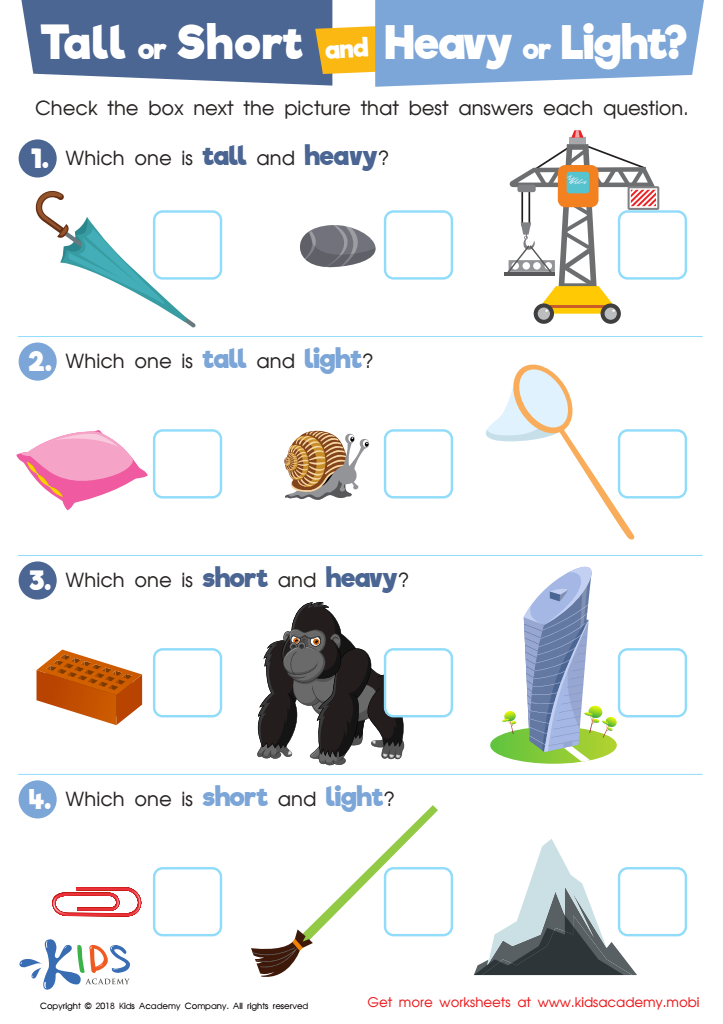

Tall or Short and Heavy or Light? Worksheet
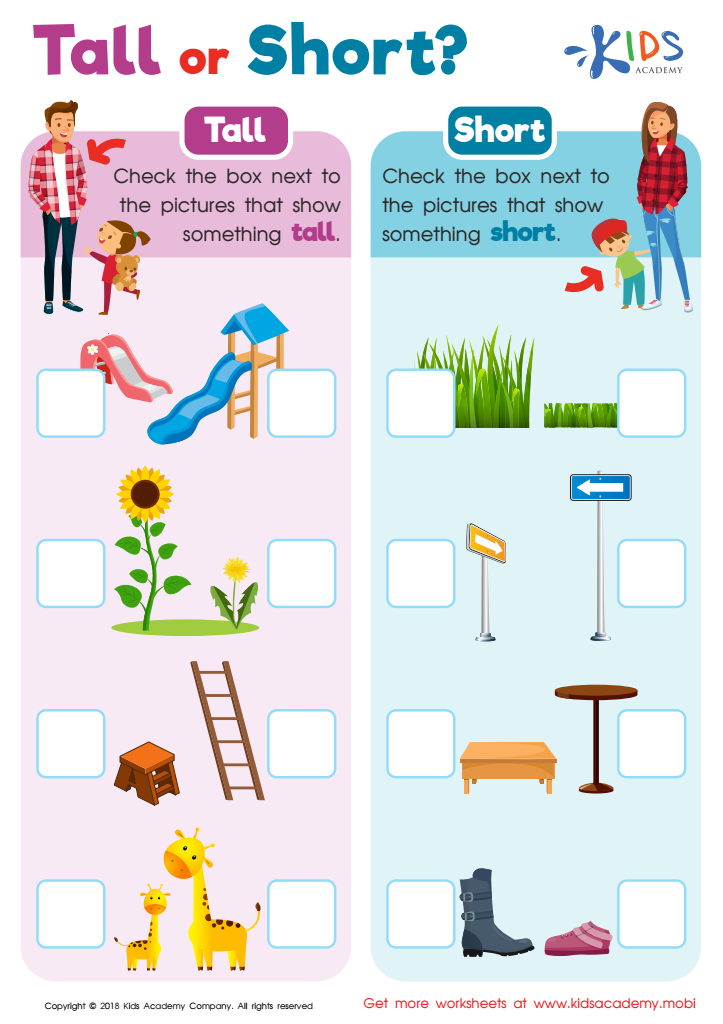

Tall or Short? Worksheet
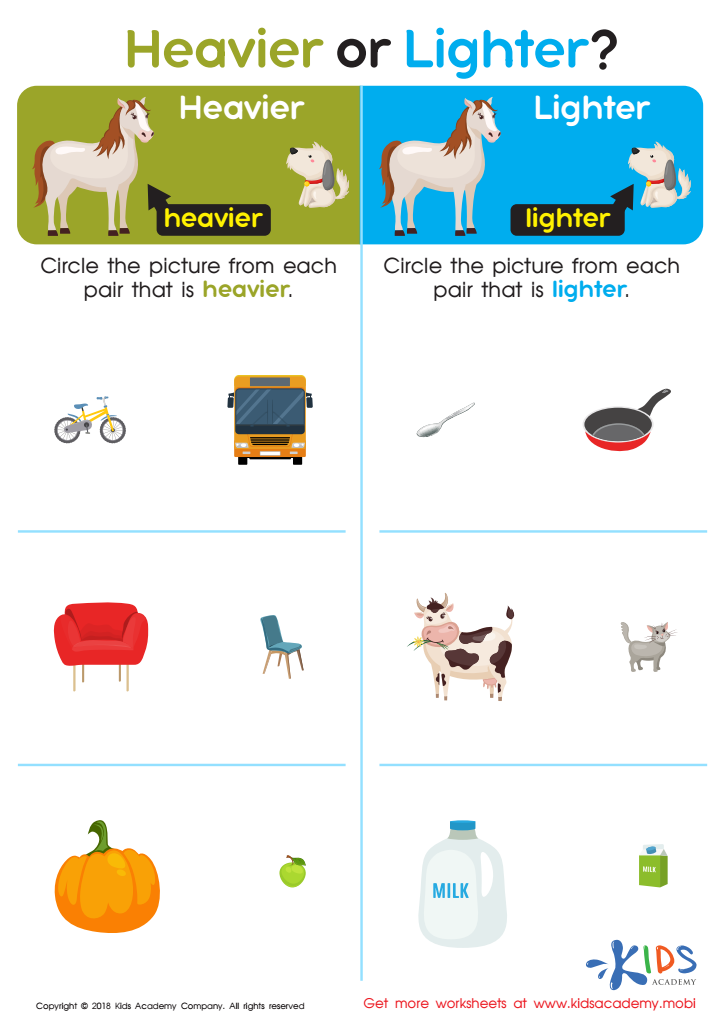

Heavier or Lighter? Worksheet
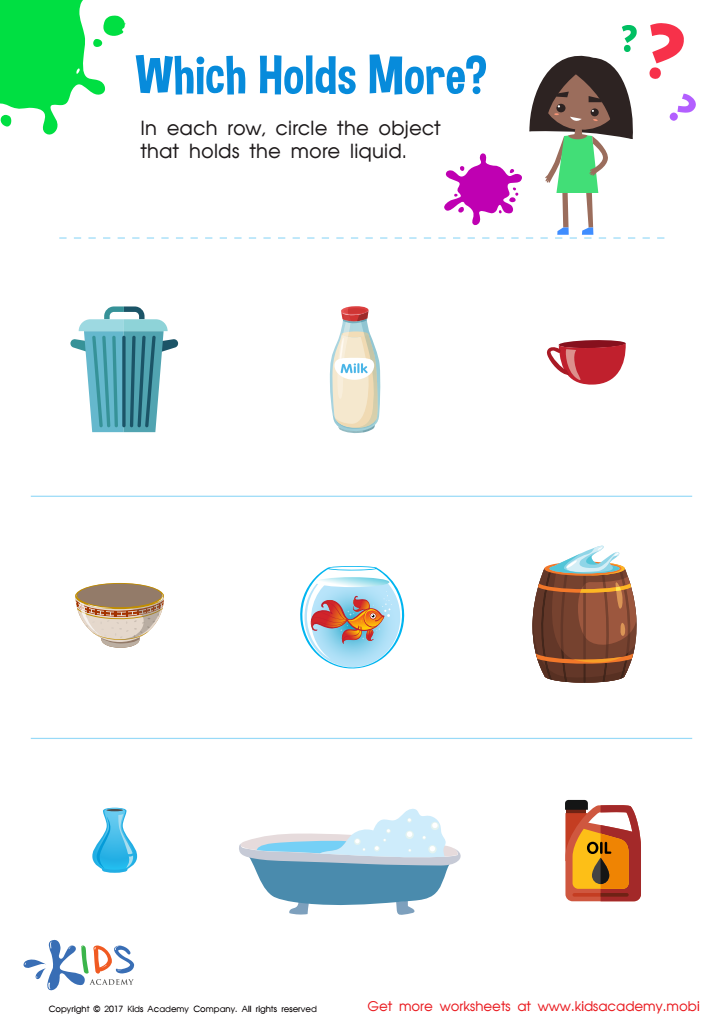

Which Holds More: Capacity Worksheet
Parents and teachers should prioritize basic measurement concepts for children aged 3-9 because they lay the foundation for essential mathematical skills and everyday problem-solving. At this developmental stage, children naturally explore the world around them, making it the perfect time to introduce concepts of length, weight, volume, and time. Engaging children in hands-on activities, such as measuring ingredients for a recipe or comparing heights with friends, fosters a deep understanding of measurement through play.
These foundational skills are crucial for building critical thinking and reasoning abilities. Early mastery of measurement concepts supports future math learning, especially in geometry and data analysis. Furthermore, understanding measurement empowers children to engage in real-world tasks, enhancing their independence and confidence.
Additionally, measurement concepts promote language development as children articulate their observations and comparisons. Encouraging discussion about size, quantity, and time contributes to vocabulary expansion and cognitive growth.
Incorporating measurement activities into daily routines and learning involves collaboration between parents and teachers, creating a consistent environment for learning. Ultimately, instilling a love for and understanding of measurement prepares children for academic success and practical life skills they will use throughout their lives.
 Assign to My Students
Assign to My Students








